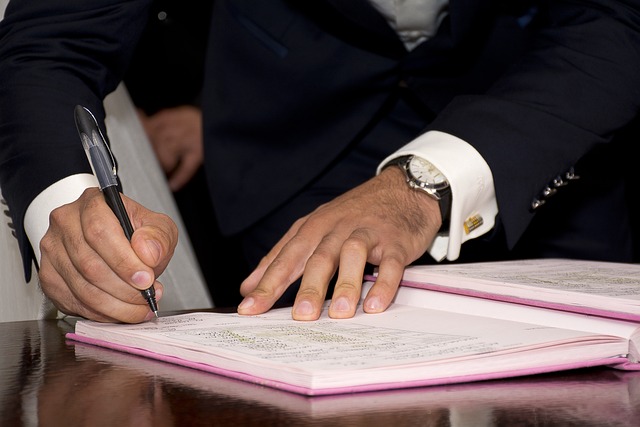Owning a leasehold property in England and Wales can be a great option for many individuals, offering a way to get onto the property ladder or secure a desirable home. However, one aspect of leasehold ownership that can be confusing and sometimes concerning is the process of extending a lease. In this article, Can A Lease Extension Be Refused, we take a look at the process and mechanism involved.
Free Initial Telephone Discussion
For a free initial discussion with a member of our New Enquiries Team, get in touch with us today. We are experienced in dealing with all the legal aspects of lease extensions and leasehold property, and once instructed, we will review your situation and discuss the options open to you in a clear and approachable manner. Early expert legal assistance can help ensure you are on the best possible footing from the start and also avoid the stress of dealing with these issues on your own. Simply call us on 0345 901 0445 or click here to make a free enquiry and a member of the team will get back to you.
Understanding Leasehold Ownership
Before delving into the complexities of lease extensions, it’s crucial to understand the basics of leasehold ownership. Unlike freehold ownership, where you own the property and the land it sits on indefinitely, a leasehold property grants you the exclusive right to occupy the property for a set period, as outlined in the lease agreement.
The value of a leasehold property typically declines as the remaining lease term shortens. This is because potential buyers become increasingly hesitant to invest in a property nearing the end of its lease term.
The Right to Extend a Lease
Fortunately, the Leasehold Reform Housing and Urban Development Act 1993 (LRHUDA 1993) grants qualifying leaseholders in England and Wales the right to extend their lease under specific conditions. This right applies to qualifying houses and flats where the lease term is less than 80 years remaining.
Can a Lease Extension Be Refused?
The short answer is yes, a lease extension can be refused, but the answer depends on several factors:
- Length of Lease Ownership: If you have owned the leasehold property for less than two years, the freeholder (landlord) can refuse your request for a formal lease extension under the LRHUDA 1993. However, this doesn’t necessarily mean all hope is lost. You can still negotiate an informal extension directly with the freeholder, but they are under no legal obligation to agree and can set their own terms.
- Formal Lease Extension Procedure: When you have owned the leasehold property for more than two years, you can initiate a formal lease extension process through the LRHUDA 1993. While the freeholder cannot simply refuse your right to extend, they can object to the terms proposed, including the premium (payment) you offer for the extension and the length of the extension.
In such cases, the matter is typically referred to the First-tier Tribunal (Property Chamber), which will determine the reasonable premium and length of the extension based on established legal principles.
Grounds for Refusal under the LRHUDA 1993
Even when following the formal process with the LRHUDA 1993, there are limited grounds under which the freeholder can still object to the lease extension:
- Intention to Redevelop: The freeholder can object if they can demonstrate a genuine and viable plan to redevelop the entire building within five years of the lease expiry. However, they must prove that the redevelopment is genuinely intended and not simply a tactic to avoid granting extensions.
- Breach of Lease Covenant: If the leaseholder has breached a significant term of the lease agreement, such as failing to pay rent or neglecting essential repairs, the freeholder may use this as grounds for objecting to the extension. However, the burden of proof lies with the freeholder to demonstrate the seriousness of the breach and its impact on their legitimate interests.
Seeking Expert Advice
Navigating the complexities of lease extensions, especially when dealing with potential objections from your freeholder, can be challenging. Seeking legal advice from a qualified solicitor experienced in leasehold enfranchisement is crucial.
At Blackstone Solicitors, our team of knowledgeable lawyers can guide you through the entire lease extension process, from assessing your eligibility to negotiating with the freeholder or representing you in the First-tier Tribunal if necessary.
Conclusion
Understanding your rights and seeking professional legal guidance is vital when considering a lease extension. While freeholders have some limited grounds for refusing an extension, the LRHUDA 1993 generally empowers leaseholders to secure the long-term future of their property. Contact us today at Blackstone Solicitors to discuss your specific situation and ensure you navigate the lease extension process with confidence.
How we can help
We have a proven track record of helping clients deal with lease extensions. We will guide you through the process and ensure all checks are carried out swiftly and efficiently and we firmly believe that with the right solicitors by your side, the entire process will seem more manageable and far less daunting.
How to Contact Our Commercial Property Solicitors
It is important for you to be well informed about the issues and possible implications of a lease extension. However, expert legal support is crucial in terms of ensuring a positive outcome to your case.
To speak to our Commercial Property solicitors today, simply call us on 0345 901 0445, or click here to make a free enquiry. We are well known across the country and can assist wherever you are based. We also have offices based in Cheshire and London.
Disclaimer: This article provides general information only and does not constitute legal advice on any individual circumstances.



